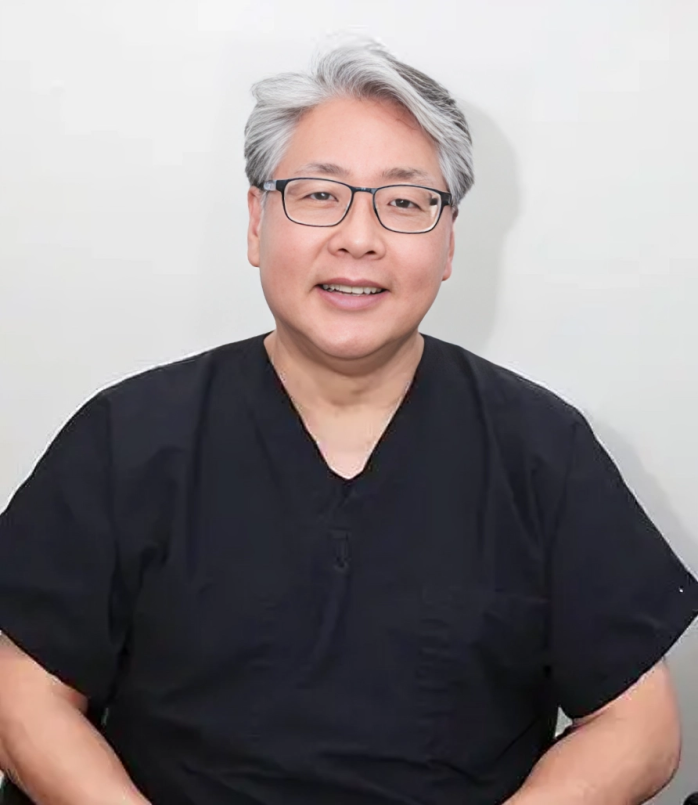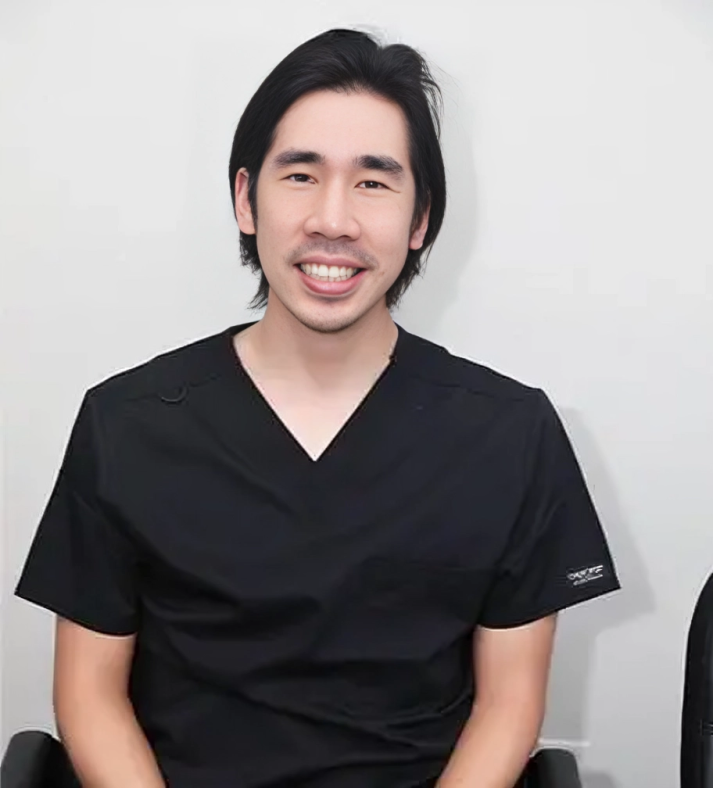Dental crowns and bridges in Los Angeles CA are vital components of restorative dentistry, serving to repair and replace damaged or missing teeth, respectively. A dental crown, also known as a cap, is a custom-made covering placed over a damaged or weakened tooth to restore its strength, shape, and appearance. Crowns are typically recommended by our dentists in Los Angeles, CA, for teeth with extensive decay, fractures, or after root canal therapy, as they provide protection and reinforcement while preserving the natural tooth structure.
On the other hand, a dental bridge is a fixed prosthetic device used to replace one or more missing teeth by bridging the gap between adjacent teeth. It consists of artificial teeth, called pontics, supported by dental crowns placed on the natural teeth or dental implants adjacent to the gap.
The need for crowns and bridges arises from various dental issues, including decay, trauma, genetic predispositions, or the natural aging process, which can lead to weakened or missing teeth. These restorations play a crucial role in restoring oral function, aesthetics, and overall oral health, allowing individuals to chew, speak, and smile confidently while maintaining proper alignment and integrity of the bite.
Whether repairing a damaged tooth with a crown or replacing missing teeth with a bridge, these restorative treatments provide durable and aesthetically pleasing solutions that enhance the smile's appearance and function, ultimately improving patients’ quality of life.
Types of Dental Crowns in Los Angeles CA
Porcelain Crowns
- Porcelain crowns are highly aesthetic and closely resemble natural teeth in color and translucency, making them an excellent choice for front teeth or visible mouth areas.
- They are durable and stain-resistant, providing long-lasting results and maintaining a natural appearance.
- Our dentists at Kawata Dental Inc. custom-make porcelain crowns to match the surrounding teeth in shape, size, and shade, ensuring a seamless and natural-looking restoration.
Porcelain-Fused-to-Metal (PFM) Crowns
- PFM crowns combine the aesthetic appeal of porcelain with the strength and durability of metal, typically a base of gold or a non-precious metal alloy.
- The metal substructure provides added strength and support, making PFM crowns suitable for restoring posterior teeth subjected to heavy biting forces.
- While highly durable, PFM crowns may exhibit a dark line at the gumline over time due to the underlying metal, which can affect their aesthetic appearance.
All-Ceramic Crowns
- All-ceramic crowns are made entirely from dental ceramic materials, such as zirconia or lithium disilicate, which offer superior aesthetics and biocompatibility.
- These metal-free crowns are ideal for patients with metal allergies or sensitivities.
- All-ceramic crowns are highly durable and resistant to chipping or fracturing, providing excellent long-term functional and aesthetic outcomes.
Gold Crowns
- Gold crowns are made from gold alloys and are renowned for their exceptional strength, durability, and biocompatibility.
- These crowns require minimal tooth preparation and are less abrasive to opposing teeth, making them a conservative and tooth-friendly option.
- Gold crowns are often recommended for posterior teeth or patients with strong biting forces, offering long-lasting performance and reliability.
The Benefits of Dental Crowns In Los Angeles, CA
- Dental crowns in Los Angeles, CA, provide extensive coverage and protection to damaged or weakened teeth, restoring their strength, function, and integrity.
- Crowns are custom-designed to match natural teeth in terms of color, shape, and size, ensuring a seamless and natural-looking restoration that enhances the smile's overall appearance. Contact us today to learn more!
- Crowns can address many dental issues, including tooth decay, fractures, cracks, discoloration, misalignment, and size discrepancies.
- Covering and sealing the tooth surface, crowns help prevent further decay, infection, or damage, preserve the tooth structure, and promote oral health. Call us to learn more.
Types of Dental Bridges
Traditional Dental Bridges
- Traditional bridges consist of one or more artificial teeth, called pontics, held in place by dental crowns (abutments) placed on the natural teeth adjacent to the gap.
- They are typically made from porcelain fused with metal (PFM), all-ceramic, or zirconia materials, which provide durability, aesthetics, and biocompatibility.
- Traditional bridges effectively replace one or more consecutive missing teeth and restore chewing function, speech clarity, and facial aesthetics.
Cantilever Bridges
- Cantilever bridges are similar to traditional bridges but are supported by a single abutment tooth on one side of the gap rather than on both sides.
- They are often used when only one adjacent tooth is available to support the bridge or when the missing tooth is located at the back of the mouth, where chewing is less stressful.
- Cantilever bridges offer a conservative treatment option for replacing missing teeth while minimizing the need for additional dental work on neighboring teeth.
Maryland (Resin-Bonded) Bridges
- Maryland bridges consist of a metal or porcelain framework with wings on either side, which are bonded to the back surfaces of the adjacent natural teeth using dental resin.
- They are a conservative alternative to traditional bridges, as they require minimal preparation of the adjacent teeth and do not involve crowning.
- Maryland bridges are commonly used to replace missing front teeth. They provide a natural-looking restoration with minimal impact on the surrounding teeth.
Implant-Supported Bridges
- Implant-supported bridges are anchored by dental implants surgically placed in the jawbone, eliminating the need for adjacent teeth to support the bridge.
- They offer superior stability, strength, and longevity compared to traditional bridges and help preserve bone health and prevent bone loss in the jaw.
- Implant-supported bridges are ideal for replacing multiple missing teeth or for patients with insufficient natural teeth to support a traditional bridge.
The Benefits of Dental Bridges
- Dental bridges restore chewing function, speech articulation, and facial aesthetics by replacing missing teeth and maintaining proper alignment and occlusion.
- By filling in the gap left by missing teeth, bridges help prevent adjacent teeth from shifting out of position, which can lead to bite problems, gum disease, and further tooth loss.
- Bridges in Los Angeles, CA, are custom-made to match natural teeth in terms of color, shape, and size, providing a seamless and natural-looking restoration that harmoniously blends in with the smile.
- Bridges restore the ability to eat, speak, and smile confidently, allowing patients to enjoy a higher quality of life and better social interactions without self-consciousness about their missing teeth.
Frequently Asked Questions
What are dental crowns in Los Angeles, and when do I need one?
Dental crowns in Los Angeles are custom-made caps that cover damaged or weakened teeth to restore their shape, size, and strength. Crowns are often used to repair cracked or decayed teeth or to support a dental bridge or implant. Your crown and bridge treatment will help protect your natural tooth and improve its function and appearance.
What is the difference between dental crowns and bridges?
Dental crowns and bridges differ in their function and application. A dental crown covers a single damaged tooth, while a dental bridge is used to replace one or more missing teeth. A bridge consists of artificial teeth supported by crowns placed on the adjacent healthy teeth. Your dentist will recommend the best option based on your needs.
What is the process for crown and bridge treatment?
During your crown and bridge treatment, your dentist will first assess your teeth and take impressions. For a crown, the damaged tooth is prepared, and a custom crown is created to fit over it. For a bridge, the adjacent teeth are prepared, and a bridge is made to replace the missing teeth. The process typically involves two visits: one to prepare your teeth and take impressions, and another to place the permanent crowns or bridge.
How much do dental crowns & bridges cost in Los Angeles?
The dental crowns & bridges cost in Los Angeles can vary depending on the materials used, the complexity of the procedure, and the number of teeth being treated. On average, dental crowns in Los Angeles may cost between $1,000 and $3,000, while dental bridges in Los Angeles can range from $1,500 to $5,000 or more. During your consultation, we’ll provide a more precise cost estimate based on your specific needs.
How long do dental crowns in Los Angeles and dental bridges in Los Angeles last?
With proper care, dental crowns in Los Angeles and dental bridges in Los Angeles can last between 10 to 15 years or more. The longevity depends on your oral hygiene habits, diet, and the materials used. Regular checkups with your dentist can help ensure that your crowns and bridges remain in good condition and function properly for many years.
Why Choose Our Dentist in Los Angeles, CA, For Dental Crowns and Bridges In Los Angeles, CA?
When searching for a trusted dentist in Los Angeles, experience, skill, and personalized care make all the difference. At Kawata Dental Inc., our highly qualified dental team is committed to providing exceptional restorative and cosmetic dentistry services that enhance your smile and improve your oral health. Our dentist in Los Angeles, CA, uses state-of-the-art technology and precision techniques to design crowns and bridges that look natural, fit comfortably, and last for years.
Our Los Angeles, CA dentist believes in combining artistry with advanced dental science to deliver custom restorations that restore function while achieving aesthetic perfection. Whether you need a single crown, a multi-unit bridge, or implant-supported restorations, our dentist Los Angeles, CA, ensures every treatment plan is tailored to your individual needs, goals, and comfort level.
At Kawata Dental Inc., we take pride in helping our patients rediscover their smiles through compassionate care and clinical excellence. If you’re seeking a trusted Los Angeles, CA dentist for crowns, bridges, or other restorative procedures, schedule a consultation today to experience dental care that prioritizes your comfort, confidence, and long-term oral health.
Dental crowns and bridges are invaluable tools in modern dentistry. They offer durable, functional, and aesthetically pleasing solutions for restoring damaged or missing teeth. Visit Kawata Dental Inc. at 12211 W Pico Blvd, Los Angeles, CA 90064, or call (310) 826-6123 to schedule a consultation with our experienced dental team today and discover the perfect solution for your dental needs.
Visit Our Office
Los Angeles, CA
12211 W Pico Blvd, Los Angeles, CA 90064
Email: [email protected]
Request An AppointmentOffice Hours
- MON8:00 am - 5:00 pm
- TUE8:00 am - 5:00 pm
- WED8:00 am - 5:00 pm
- THU8:00 am - 5:00 pm
- FRI8:00 am - 5:00 pm
- SATClosed
- SUNClosed



